5 MOST OVERRATED SUPPLEMENTS YOU DON’T NEED
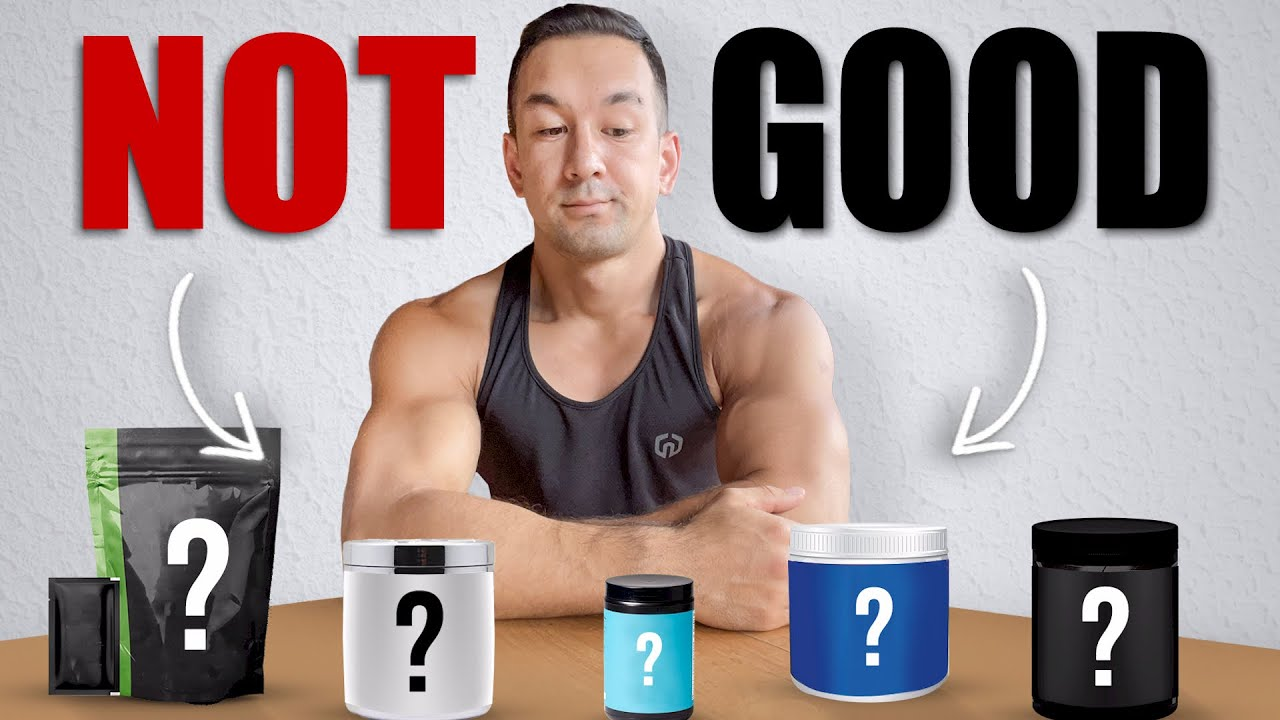
5 Overrated Supplements That Are a Waste of Your Time
In this article, I’ll be going over 5 of the most overrated supplements in the fitness industry.
These supplements are top selling, widely-used products that companies will push to make a quick buck. You’re probably wasting both your money (and time) if you’re buying and using them.
Fitness supplements can be a really tricky subject…
There are a select few supplements out there that can be genuinely beneficial in terms of optimizing training performance, body composition, and overall health.
But the vast majority–at least 90% and probably more–are really, straight up, ineffective. Many supplement companies are ripping you off without you even knowing it.
They use unproven ingredients which aren’t backed by solid research. Even when they use legitimate ingredients, companies tend to under-dose them and use lower quality forms.
As a result, the supplements are over hyped, over priced, and a lot of times the labels aren’t even accurate. In some cases, they can even be straight up sketchy in terms of their safety profile.
So, this is an area where you really need to do the proper research first. Don’t just take all that flashy, hyped up supplement marketing at face value. Most people selling these products do not have your best interests at heart. The supplement industry at large is mostly just a money making game where the central goal is to maximize profit.
Let’s go over these 5 supplements to make sure you’re spending your money wisely.
Overrated Supplements #1: Beta Alanine Products
In no specific order, the first supplement I want to talk about is beta alanine.
This one might seem a bit surprising because beta alanine is usually thought of as a “research backed,” “evidence based” ingredient. And, if you know how to properly take beta alanine, it can be an effective supplement to some degree. It’s even a staple addition in a lot of pre-workout supplements and “muscle building” formulas.
However, the truth is that for most people performing standard weight training workouts where building muscle and increasing strength is the main goal, beta alanine probably isn’t going to do anything significant for you.
Beta alanine only has performance benefits on sets that last at least 60 seconds or more. If you time your sets, you’ll probably find that you very rarely (if ever) go beyond 60 seconds. Even if you do, the actual strength increase is going to be very, very minor.

Also, keep in mind that beta alanine doesn’t have any immediate effects on performance.
Like with creatine, it’s something you have to take every day. Once your muscles are fully saturated with carnosine, beta alanine’s purported benefits are ready any time you train.
Let’s say you’re taking one of the endless number of pre workouts that have 3 grams of beta alanine in it. Say you’re using that pre workout maybe 3-4 times a week. If that’s the case, you’re not even getting enough total beta alanine to yield the very small benefit it might have in the first place.
To get the full benefit, you’d also have to buy pure beta alanine separately and take it on your non-training days. Otherwise, you’re just paying for an ingredient in your pre workout that likely is completely useless.
On top of that, you also have to deal with the histamine response, or the “beta alanine tingles.” This is that itchy “pins and needles” effect on your skin that comes after you take it.
While some people enjoy that feeling, there’s no actual performance benefit to it. Some say it makes them feel more amped up, but overall I think most people would prefer not to feel that effect. I find it to be really annoying, personally.
Who could use beta alanine?
If you’re someone who regularly trains in very high rep ranges, or you’re a competitive athlete and paying that extra money is worth a potential, very small increase in performance, then beta alanine supplementation would make sense.
3.2 to 6.4 grams per day is the standard research supported dose. You can reduce the “itch” by taking it with a meal or splitting up the dose.
But for everyone else (probably 99% of those reading this), I really don’t think beta alanine is worth it.
Overrated Supplements #2: “Advanced” Forms of Creatine
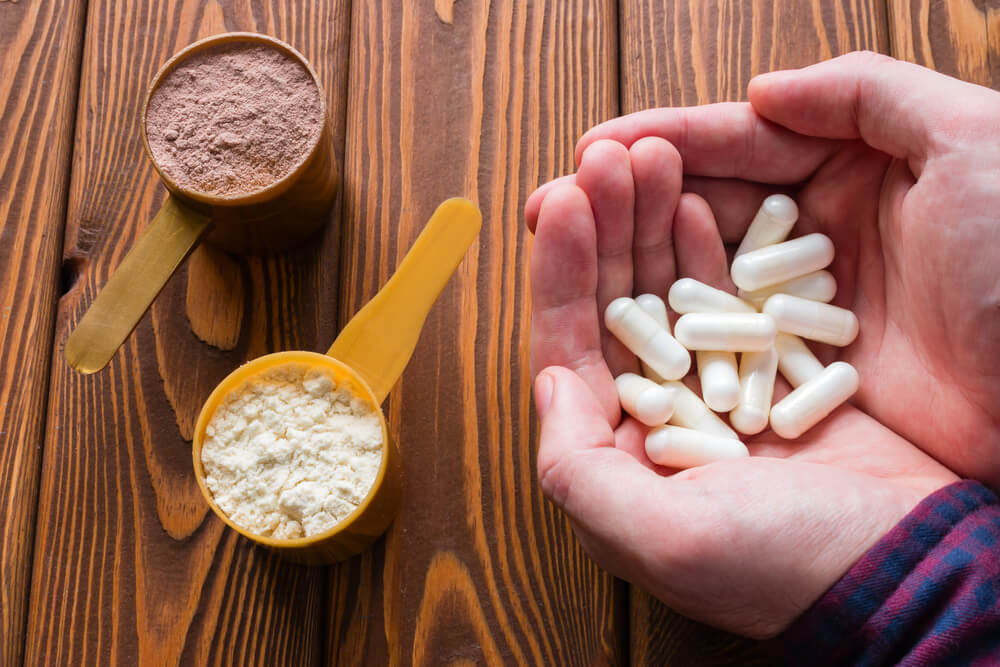
I’ve talked about this group of overrated supplements before in my Athlean-X supplement line review. In their post-workout formula, they use a form of creatine called Kre-Alkalyn. If you’ve had any experience with taking creatine, you’re probably familiar with its most popular form: creatine monohydrate.
In reality, any form of creatine that is not creatine monohydrate is extremely overrated.
One really common tactic supplement companies use (and in marketing in general) is to create an imaginary problem in order to sell you the solution to it.
The creatine space is a prime example of this. Companies have taken creatine monohydrate–a high quality, thoroughly researched ingredient that is safe, effective, and affordable–and then just made up a bunch of lies about it so that they can sell you their “new and improved” form.
The “new” forms cost way more than the original monohydrate. Companies then rebrand and sell them in forms like the aforementioned Kre-Alkalyn, creatine hydrochloride, creatine nitrate, creatine ethyl ester, buffered creatine, creatine serum, effervescent creatine, and so on.
You’ll then hear claims like “creatine monohydrate causes bloating or cramping” or “it isn’t fully absorbed” or “it’s dangerous because it converts to the waste product creatinine.” The companies then go on to say that their advanced creatine form solves all of those issues.
In reality, this is just a bunch of B.S to scam you out of money.

Creatine monohydrate is extremely bio-available. Your body will absorb nearly 100% of it, and it will fully saturate your muscles with creatine. Creatine monohydrate has never been shown to be unsafe or have side effects in otherwise healthy people. Thus, you can’t really ask for much more.
Full saturation of the muscles means full saturation of the muscles, and you can’t go beyond that.
Research behind “advanced” forms of creatine, and how they’re inferior to creatine monohydrate
In a study conducted by the Journal of the International Society of Sports Nutrition, buffered creatine was found to be no more effective than monohydrate. Buffered creatine products, like Kre-Alkalyn, are actually 98% creatine monohydrate anyway.
Creatine ethyl ester is actually less absorbable and converts to creatinine at a higher rate. Forms like creatine serum are also less effective because the creatine breaks down over time when it’s in liquid form.
Creatine hydrochloride is the only one that has ever shown any “benefit.” It does saturate the muscles with creatine at a slightly lower dose compared to monohydrate. However, even when you equate for the dose, it still works out to be more expensive anyway.
At the end of the day, creatine monohydrate is still king. There’s no good reason to use any other form since they’re all way more expensive while being equally or less effective.
Just take 3-5 grams of creatine monohydrate once per day at any time mixed with whatever you want. After 2-3 weeks of doing that consistently, you’ll have all the benefits that creatine supplementation offers for as long as you continue using it.
These benefits include increased intramuscular water volume and a slight boost in lifting strength. This can then help to improve muscle growth over the longer term, assuming you’re on a properly structured training routine.
Overrated Supplements #3: Testosterone Boosters
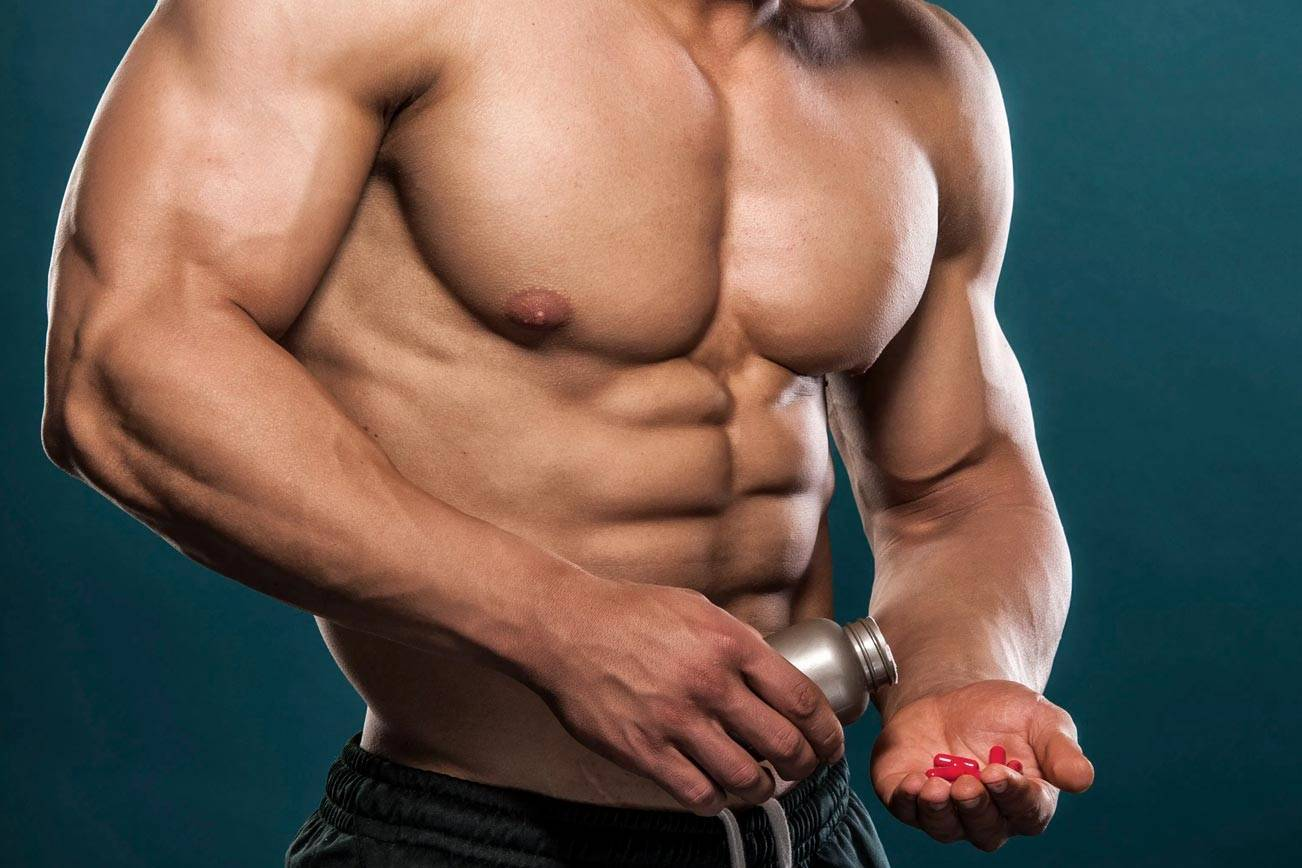
Any product that claims to boost testosterone levels (or growth hormone levels) is in the group of overrated supplements.
The key thing to understand here is that just because something “increases testosterone” or “increases growth hormone” means next to nothing in and of itself.
The real question is: how much of an increase are you getting, and over what time period?
If the increase doesn’t reach a certain threshold, then it’s not going to have any performance or body composition benefit. Even if the increase is significant, it still has to be sustained over a prolonged period in order to yield something meaningful from it.
Outside of actual testosterone supplementation, you’re not going to find any natural, or over the counter, compounds that can achieve that.
Some common “testosterone” or “growth hormone boosters” are tribulus, maca root, d-aspartic acid, and longjack.
At best you might get a small libido increase from those sorts of compounds. But in terms of building muscle, it’s just going to be a complete waste of money.
In addition, growth hormone does not build muscle in the first place, but it will be often marketed that way. Growth hormone does increase lean body mass, but in the form of water weight and connective tissue, not actual muscle.
This whole thing applies not just to supplementation but also to training and nutrition in general.
For example, you might’ve heard the idea that squats and deadlifts increase testosterone.
Heavy, intense compound lifts do boost testosterone, but it’s only a temporary spike. It’s not to a high enough long term level to where it’s going to systemically increase total body muscle growth.
Or you might’ve heard that intermittent fasting increases growth hormone, same deal there, you will get a small temporary boost but not to an extent that will measurably increase fat loss in comparison to regularly spaced meals.
So always remember, just because someone tells you that technique X increases hormone Y therefore you should do it, that doesn’t mean anything. How much of an increase are you getting over what time period and is it enough to produce measurable real world benefits.
Check out my article on which testosterone boosting supplements actually work, if you’re interested.
Overrated Supplements #4: “Weight/Mass Gainers”
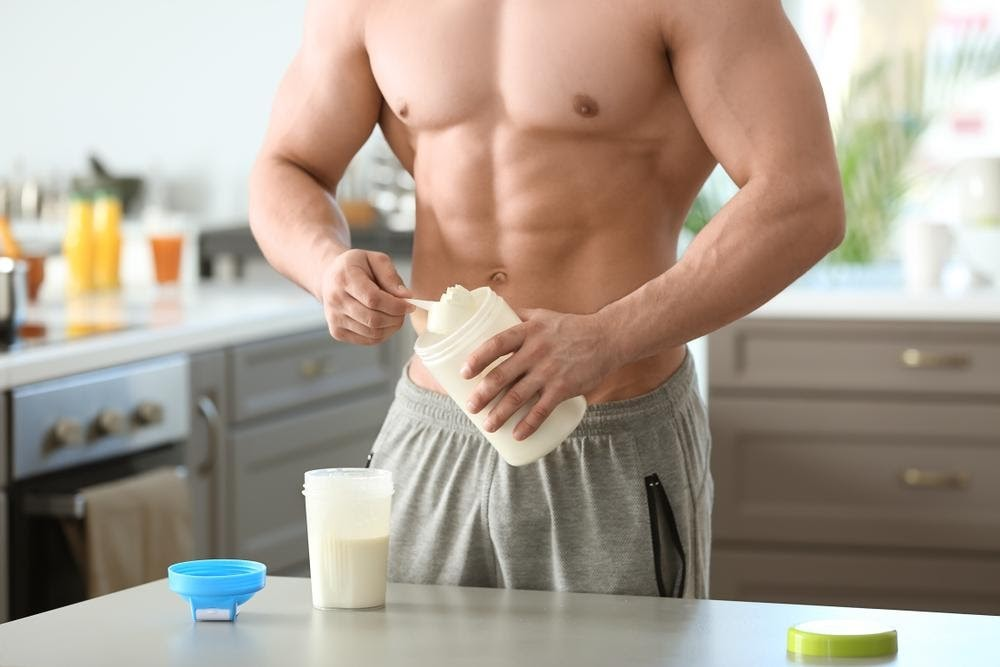
Weight or mass gaining powders might seem appealing if you’re naturally thin and are wanting to pack on overall size.
But, keep a couple things in mind. First, you don’t even need a huge calorie surplus to maximize muscle growth to begin with. If you eat around 200-300 above maintenance, this surplus will be enough to optimize your gains. Going beyond that is just going to result in fat gain.
Second, most of these “weight gain powders” are just a really basic mix of whey protein and simple sugar, usually maltodextrin.
Mass gainer alternative
If you have a smaller appetite, realize you have other options before forking over cash for a mass gainer. A much better tasting (and healthier) choice is to just buy a high quality protein powder on its own. Then, you can blend in your own sources of carbohydrates and fats. This is a great option for those who have a hard time getting in all the calories they need.
Back in my younger bodybuilding obsessed days, this was my standard approach. I would make big, homemade weight gainers every day and drink them straight from the blender.
A good option is to use milk as a base, or coconut milk if you want to boost the calories even further. Then, you can mix in things like fruit, oats, yogurt, nut butters, seeds, or oils (such as flaxseed or olive). If you still want to increase the calories further, you can toss in some dark chocolate, avocado, or even some ice cream.
You’ll find that it’s very easy to condense a very high number of calories into a small volume if you just choose the right ingredients. Plus, you can ensure that your homemade shake gives you all of the calories and macronutrients you need to support muscle growth.
The added vitamins, minerals, fiber, and healthy fats are an added bonus. Most weight gainer supplements don’t have these, either.
If you’re on the go and you like the convenience of a weight gain powder, then by all means go for it. If you’re just using it to make up a small percentage of your calories for an extra easy boost, then that’s ultimately fine. But if possible, make your own homemade shake as it will be the better choice in most cases.
Overrated Supplements #5: BCAAs
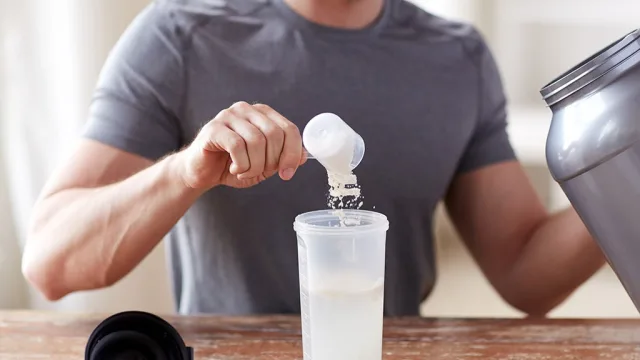
You may have asked yourself this question before: Are BCAAs worth it?
Honestly, this list wouldn’t be complete without mentioning branched chain amino acids (BCAAs). I’ll also add essential amino acids (EAAs) into this one as well.
Probably the 10 millionth time I’ve mentioned this, but BCAAs are still a top selling supplement even though basically all the research points to them being flat out ineffective. But, since new subscribers are joining my YouTube channel or reading my blog every week, this definitely bears repeating.
What are BCAAs and why are they ineffective?
The BCAAs are leucine, isoleucine, and valine.
As long as you’re eating enough total protein for the day from good quality protein sources, then your BCAA needs will already be fully met. Just make sure to eat at least 0.8 grams per pound of body weight (which is probably enough for most people).
Supplementing with more BCAAs on top of that won’t give you any added super benefits since they’re a natural component of protein anyway.
Just because some is good, doesn’t automatically mean more is better. There’s a cap on what your body can actually utilize.
BCAA’s are not anti-catabolic on their own. They do stimulate protein synthesis, but that doesn’t mean anything unless the other essential amino acids are also present. There’s no evidence that BCAAs reduce muscle soreness or increase recovery any more than regular protein.
So, taking BCAAs as a standalone supplement is going to be useless for the vast majority of people. The only situation where they might have some utility would be if your protein intake is on the lower end and you’re consuming lower quality sources in general.
For example, this could apply to some vegans. In that case, adding some BCAAs to your meals might be helpful. (There are also other ways to make a vegan bodybuilding diet effective)
But aside from that, BCAAs are definitely not worth your money.
Essential amino acids
Some people supplement with essential amino acids instead. They’ll argue that EAAs supply the full spectrum of aminos.
But once again, if you’re just eating enough protein, you’ve met all your essential amino acids needs. Thus, taking more isn’t going to do anything for you.
However, let’s say fasted training is your thing. If you’re looking to get some aminos into your system pre-workout, you’ll be better off to just take a small serving of whey protein instead. Now, you’re not technically “fasted” when consuming calories in this way. But, keep in mind that EAAs contain calories, too, and so do BCAAs.
At least with whey protein, or just any high quality protein source in general, you know what you’re getting. These protein sources supply the proper amounts and ratios of the essential amino acids. With EAA supplements, many companies will just front load the cheapest ones into the mix.
This makes the overall protein source of significantly lower quality.
Okay, Let’s Recap…
Here are the 5 overrated supplements we discussed:
- Beta Alanine
- “Advanced” forms of creatine
- Testosterone Boosters
- Weight/Mass Gainers
- BCAAs/EAAs
Truth is, you don’t need them, and they’re probably a waste of your money as well.
If you found this article helpful, make sure to sign up for your FREE custom fitness plan below...




